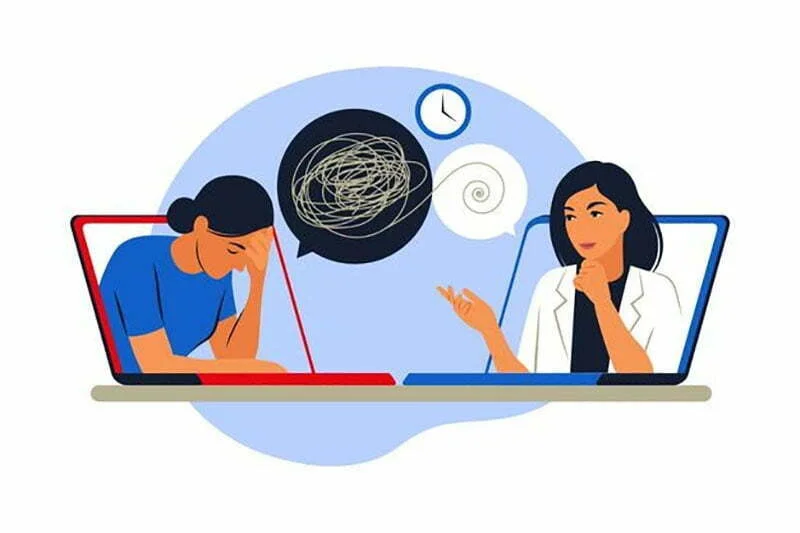
The human mind is complex, and mental health struggles affect millions of people worldwide. Advances in technology have made online therapy a viable solution for those seeking mental health support. But how does it actually work? The science behind therapy online reveals how digital counseling can reshape thought patterns, improve emotional regulation, and enhance overall well-being. By understanding the mechanisms of online counseling, individuals can make informed decisions about their mental health care.
How Online Therapy Works
Online therapy is based on scientifically proven psychological principles, delivered through virtual platforms. Whether through video calls, messaging, or phone sessions, online therapists use established therapeutic techniques to help clients address mental health concerns. Some of the key components include:
- Cognitive Behavioral Therapy (CBT): Helps reframe negative thoughts and develop healthier behaviors.
- Mindfulness-Based Therapy: Encourages self-awareness and emotional balance.
- Psychodynamic Therapy: Explores unconscious emotions and past experiences that influence behavior.
- Solution-Focused Therapy: Concentrates on practical steps to improve mental health.
- Interpersonal Therapy (IPT): Focuses on improving communication and relationships.
The Brain’s Response to Online Therapy
Therapy, whether in-person or online, has a profound impact on the brain. Neuroscientific research shows that consistent engagement with a therapist online can lead to significant improvements in mental well-being.
1. Neuroplasticity and Thought Rewiring
- The brain is capable of changing and adapting, a concept known as neuroplasticity.
- Online counseling helps individuals challenge unhelpful thought patterns, leading to long-term cognitive restructuring.
- Techniques like CBT encourage new neural pathways that reinforce positive thinking and emotional regulation.
2. Stress Reduction and the Nervous System
- Chronic stress leads to overactivation of the amygdala, the brain’s fear center.
- Engaging in therapy online can reduce stress hormone levels and enhance emotional resilience.
- Mindfulness and relaxation techniques taught by online therapists activate the parasympathetic nervous system, promoting calmness.
3. The Role of Dopamine and Serotonin
- Therapy increases the production of dopamine and serotonin, neurotransmitters responsible for mood regulation.
- Affordable therapy online provides structured emotional support, improving overall mental health and stability.
The Effectiveness of Online Therapy
Many studies confirm that online counseling is just as effective as traditional in-person therapy for various conditions, including:
- Depression: Online therapy helps individuals develop coping strategies and address underlying causes of depressive symptoms.
- Anxiety: Techniques such as exposure therapy and mindfulness significantly reduce anxiety levels.
- PTSD: Trauma-focused therapy sessions provide a safe space for processing and healing.
- Relationship Issues: Couples therapy conducted via video sessions has shown high success rates in improving communication.
Platforms like 7Cups provide peer support alongside professional therapy, further enhancing emotional well-being.
The Benefits of Online Therapy Over Traditional Counseling
While traditional therapy remains valuable, therapy online offers unique advantages:
- Accessibility: Those in remote areas or with mobility challenges can access therapy easily.
- Affordability: Many affordable therapy online options provide cost-effective alternatives to in-person sessions.
- Anonymity and Privacy: Online sessions allow individuals to seek help without fear of judgment.
- Flexible Scheduling: Busy professionals and parents can fit therapy into their routine.
Making the Most of Online Therapy
To maximize the benefits of online counseling, individuals should:
- Choose the Right Platform: Research therapist online options that fit specific needs.
- Be Open and Honest: Transparency leads to more effective therapy.
- Practice Learned Techniques: Implement strategies outside of sessions for long-term success.
- Stay Consistent: Regular sessions lead to better outcomes.
Conclusion
The science behind online therapy proves that it is a powerful tool for mental health support. From rewiring negative thought patterns to reducing stress and improving emotional regulation, therapy online provides real, measurable benefits. With the rise of affordable therapy online, mental health care is now more accessible than ever. By embracing online counseling, individuals can take control of their mental well-being and lead healthier, happier lives.
Also read: Exploring Sibling DNA Testing: A Step-By-Step Process
